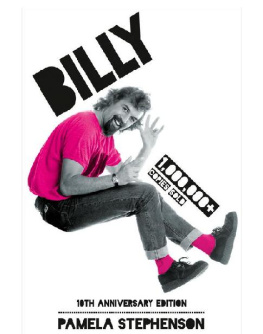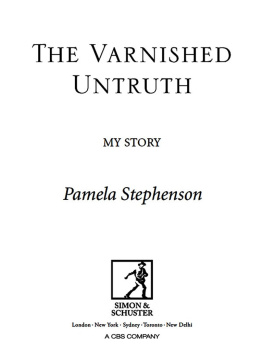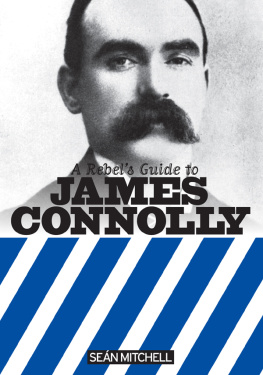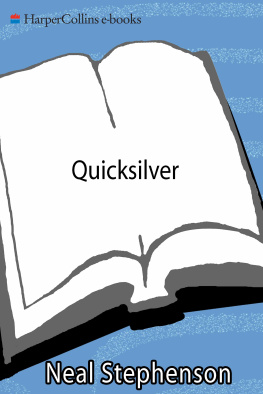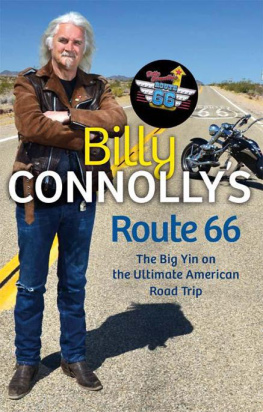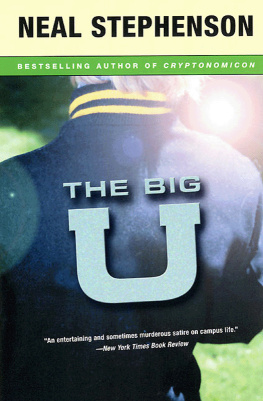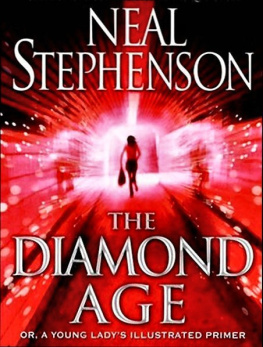Pamela Stephenson - Billy Connolly
Here you can read online Pamela Stephenson - Billy Connolly full text of the book (entire story) in english for free. Download pdf and epub, get meaning, cover and reviews about this ebook. year: 2012, publisher: HarperCollins UK, genre: Detective and thriller. Description of the work, (preface) as well as reviews are available. Best literature library LitArk.com created for fans of good reading and offers a wide selection of genres:
Romance novel
Science fiction
Adventure
Detective
Science
History
Home and family
Prose
Art
Politics
Computer
Non-fiction
Religion
Business
Children
Humor
Choose a favorite category and find really read worthwhile books. Enjoy immersion in the world of imagination, feel the emotions of the characters or learn something new for yourself, make an fascinating discovery.
- Book:Billy Connolly
- Author:
- Publisher:HarperCollins UK
- Genre:
- Year:2012
- Rating:4 / 5
- Favourites:Add to favourites
- Your mark:
- 80
- 1
- 2
- 3
- 4
- 5
Billy Connolly: summary, description and annotation
We offer to read an annotation, description, summary or preface (depends on what the author of the book "Billy Connolly" wrote himself). If you haven't found the necessary information about the book — write in the comments, we will try to find it.
Billy Connolly — read online for free the complete book (whole text) full work
Below is the text of the book, divided by pages. System saving the place of the last page read, allows you to conveniently read the book "Billy Connolly" online for free, without having to search again every time where you left off. Put a bookmark, and you can go to the page where you finished reading at any time.
Font size:
Interval:
Bookmark:
Billy
PAMELA STEPHENSON

To the Connolly and McLean families,
in the spirit of healing through understanding;
and to all families who are divided by religious differences,
or who struggle with poverty, abuse or addiction.
Contents
Much has been written already about the chimerical joker known to the world as Billy Connolly. That creature, however, is a fictional one, a Bill-o-the-wisp that dances from tabloid to tome with relentless inaccuracy. Nothing unusual about that: everyone who comes to public attention is reflected in fragments, half-truths and downright lies since every observer projects his own fantasy upon the famous person in an illusory folie deux. In any case, when it comes to chronicling a persons life there is no such thing as absolute reality, even if the writer happens to be his wife and a shrink to boot. I, for one, subscribe to the notion implied by the Heisenberg Principle, that nothing in the universe can ever be accurately observed because the act of observation always changes it. For every one life, there are a million observed realities, including several of the subjects. A stranger caught in a portrait of myself, as Nabokov described the phenomenon, is commonly reflected back to a bemused interviewee.
Who HE? Billy will shout, slapping down the latest visual or written appraisal he considers is a dark imitation of his former self. In my paradigm, every person holds the reality of his own experience either in his minds eye or just below the surface of consciousness, or even deeper in the unconscious mind; but in the latter level we are all strangers, even to ourselves, and the mysterious workings of our unfathomed parts are revealed only in our dreams. Even within families, shared times are experienced differently, coloured by the age, family role or state of mind of each member. Small wonder, then, that some of Billys relatives and friends have disparate impressions of the following events. For Billy, reading each chapter after completion has elicited the shock of self-confrontation, accompanied by frequent laughter, occasional fury and a few precious tears as he painfully re-experienced many traumatic events. Most rewardingly for the author, the process of drawing together the following occurrences and providing insights might well have been a catalyst for his further healing, although Billy will have none of that: Pish! he cries. As my old granny Flora used to say, The more you know, the less the better. Another gem of Floras was: Never clothe your language in ragged attire. Billy obviously missed the word never because, purely in an attempt to please his dear old gran, he continues to say the f word in every single sentence and double on Sundays. I actually wondered about Tourettes syndrome when I first met him. People try to stop Billys profanity, but that only encourages him. I myself have found great utility in those special collars for large pet dogs, with the remote control device that administers savage electric shocks to the neck of any beast that gets too close to the mark. Undetectable beneath his polka-dot shirt collar, it came in very handy recently when Billy gave a graduation address at our childrens school. You know where this is leading try to guess the number of f words in this book before you read it. Be creative: its just like guessing the number of marbles in a jar so run a sweep, raise money for charity or decide who buys the next round. The answer can be found
Im just playing with you. When this book was first published, people were frantically turning pages to satisfy their mathematical sensibilities. This was a trap. If observed, one risked being accused of committing the appalling readers crime of turning to the last page for an unearned glimpse of the ending. But by now, almost everyone who picks up this book knows how Billys childhood story ends with the triumph of a successful life as a beloved comedian. However, the paragraphs above were written ten years ago, when HarperCollins was just about to publish Billy for the first time. It was a nerve-wracking time. In the run-up to publication, both author and subject were mightily scared because this book is not what people might have been expecting a frothy romp through the life and times of Billy Connolly, funny man and hilarious raconteur. Oh, one could write a facile account of him (the time that silly big man ran naked round Piccadilly Circus, got drunk with Elton, and danced with Parky) but, in my opinion, that would be dishonest. No, theres much, much more to his story and, both as a psychologist and as Billys wife, I believed the truth was begging to be told.
Billys real story is a dark and painful tale of a boy who was deprived of a sense of safety in the world. This early trauma had a massive influence on the man he became a survivor of abuse whose psyche still bears the scars, and whose resultant, deep self-loathing prompted self-destructive tendencies. My many years working as a psychotherapist have taught me that it is usually healing to bring ones dark secrets into the light and find that one is still accepted and loved. And ever since I caught my husband crying by the TV when psychologist John Bradshaw was helping a man come to terms with his childhood abuse, I wanted that for Billy.
But he was afraid that, when readers discovered his shameful secrets, they would turn their backs on him out of scorn, pity, or embarrassment. And I was concerned that, having convinced him to tell the world his extraordinary story and being the architect of that decision I bore considerable responsibility for the outcome. What if it went wrong? What if I had misjudged how people would react? What if Billy became retraumatized by it all? Public revelations cannot be retracted. And revisiting terrible events under the wrong circumstances can cause further harm.
Fortunately, many of the millions of people who read Billy reached out to my husband in wonderfully positive ways. We were both unprepared not only for the unprecedented success of the book, but for the massive and widespread outpouring of support and acceptance. Readers let Billy know how much they empathized with him, adored him and, in many cases, shared similar stories of violation, torture and humiliation. Far from being rejected, Billy became a poster child for those who seek to overcome the challenging legacy of a painful childhood, who hope eventually to find that the revenge of survival and future happiness let alone success is sweet.
Billy and I received hundreds of letters from people who poured out their own, touching stories of childhood torment. Some even said this was the first time they had dared tell their own story, and that it was Billy who had finally given them the courage. It made Billy very happy to learn that others gleaned hope and healing from his story. And for me, it was particularly gratifying to learn that the book seemed to help depressed, abused, or hopeless people.
Theres nothing like facing the demons from ones past wrenching them from the realm of the unconscious and talking about them with an empathic person to lead one to a sense of peace and a healthy perspective. Nowadays, Billy speaks compassionately about his father, and says he has forgiven him. But thats no easy task for any survivor of abuse; psychologists know that forgiveness and healing do not necessarily go hand in hand, and I am well aware Billy still harbours reserves of fury that may never, ever be assuaged. He continues to be a somewhat tortured soul, occasionally as insecure and frightened as he was as an abandoned four-year-old. And he still struggles with his attention disorder (which is only a problem offstage, since losing his way while telling a story has become an aspect of his stand-up concerts that audiences thoroughly enjoy). He also struggles with short-term memory, organization, gaining a gestalt perspective on anything, and anxiety; pitching himself on stage has not become any easier than it was when he first started.
Next pageFont size:
Interval:
Bookmark:
Similar books «Billy Connolly»
Look at similar books to Billy Connolly. We have selected literature similar in name and meaning in the hope of providing readers with more options to find new, interesting, not yet read works.
Discussion, reviews of the book Billy Connolly and just readers' own opinions. Leave your comments, write what you think about the work, its meaning or the main characters. Specify what exactly you liked and what you didn't like, and why you think so.

